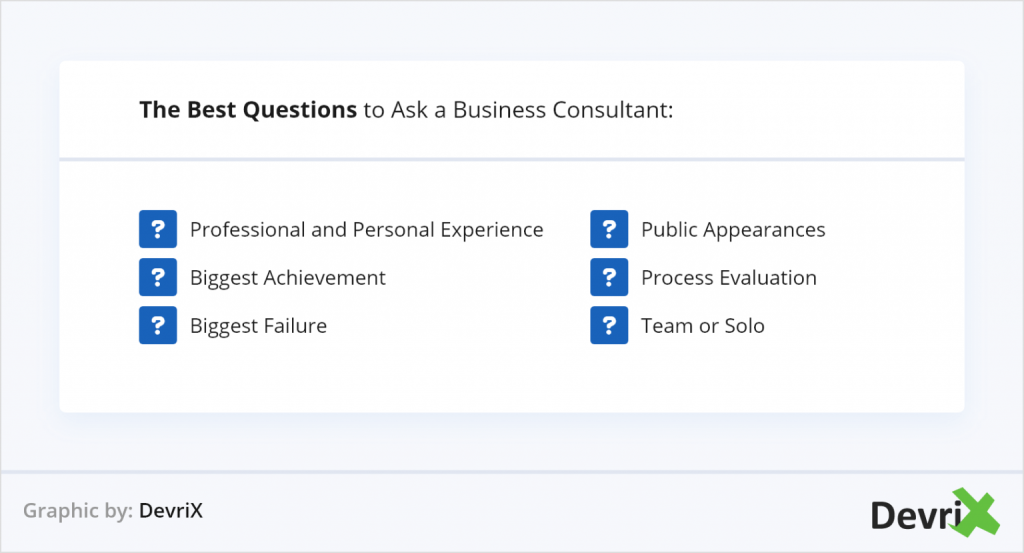

Choosing the right business consultant is a critical step for any business looking to achieve its goals and overcome its challenges. A consultant who truly understands your business can offer invaluable insights, strategies, and support, ultimately contributing to the success of your venture. However, navigating the field of consultants can be daunting, especially when trying to find a partner who aligns with your specific needs and values. This article will guide you through the process of selecting the right consultant for your business. We’ll explore crucial steps, from initial research and questioning, to understanding your own business requirements and assessing the consultant’s qualifications. We will offer a detailed framework for your consultant search, ensuring you make an informed decision.
Defining Your Business Needs and Goals
Before you start your search for a business consultant, take some time to clearly define your business needs and goals. This initial step is vital because it sets the foundation for your entire consultant selection process. What specific challenges are you facing that you need a consultant to address? What are your short-term and long-term goals? What are your budgetary constraints? Understanding these fundamental aspects will allow you to identify a consultant who can genuinely help you achieve your objectives. For example, a small business owner looking to increase sales may require a different type of consultant than one looking for help with financial planning. Don’t just focus on broad problems; pinpoint specific areas needing improvement.
Conducting Thorough Research and Due Diligence
Once you have a clear understanding of your needs, you can begin your research. Utilize online resources, industry publications, and networking opportunities to gather information about potential consultants. Look for consultants who have experience in your industry, and ensure their experience aligns with the specific needs of your business. Explore their portfolios, case studies, and testimonials. These resources can offer valuable insights into a consultant’s approach and the results they have achieved for clients in similar situations.
Evaluating Consultant Expertise and Experience
Assessing the consultant’s qualifications and relevant experience is crucial. Dive deep into the consultant’s background—their certifications, educational qualifications, and prior achievements. What are their areas of specialization? Do they have a proven track record of success in similar industries? Researching and understanding a consultant’s background is essential to determine if their expertise aligns with your business’s needs. How can their skills help overcome your specific challenges? Interviewing is an invaluable component of the evaluation process. It allows you to assess their personality, communication style, and overall fit.
Determining Budget and Contractual Agreements
The financial aspect plays a crucial role. Get clear about your budget constraints and inquire about the consultant’s fees and payment terms. Discuss their service packages, potential long-term contracts, and any hidden charges or fees in advance. Avoid surprises that can arise later. A transparent and upfront approach to the financial aspect is essential to avoid any financial misunderstandings. Have a detailed financial plan for the consultation, ensuring you have a proper understanding of the consultant’s rates.
Assessing Communication Style and Collaboration Approach
Beyond technical expertise, consider the consultant’s communication style and their approach to collaboration. A consultant who can effectively communicate complex ideas and work collaboratively with your team is invaluable. This approach creates a harmonious and productive partnership, allowing for easier problem-solving and communication. Consider how they will communicate with your team—and how you will receive feedback—to ensure a positive and productive working relationship.
How do I effectively assess a consultant’s communication skills and collaborative approach?
In addition to their technical expertise, it’s important to evaluate the consultant’s communication style and their ability to collaborate effectively with your team. One of the best ways to do this is to request information about their past experiences or projects. This allows you to understand their approach, their communication strategies, and to determine whether their style aligns with your business needs. Also, don’t hesitate to schedule a meeting with them to assess their communication skills and collaborative approach firsthand.
How long should I expect the selection process to take?
The time required for the selection process depends on several factors, such as the complexity of your business needs, the scope of the consultancy project, and the number of potential consultants you wish to interview. It’s crucial to allow sufficient time for thorough research, interviews, and evaluation. Rushing this process can lead to a less effective outcome. Consider all the potential pitfalls and be patient throughout the process.
What kind of questions should I ask a potential consultant?
When interviewing potential consultants, you need to ask questions that can determine if they have the skills necessary to meet your business needs and goals. Ask questions that explore their experience, their understanding of your industry, and how they can address your specific challenges. This ensures a comprehensive understanding of their qualifications and experience to address your business needs and goals.
What factors should I consider when establishing a budget for the consulting engagement?
Determining a budget for your consultation is a critical factor. Consider the scope and timeframe of the consulting project, as well as the consultant’s fees and payment terms. Don’t overlook potential additional expenses that may arise, such as travel or materials costs. Ensuring a transparent budget with the consultant will ensure a positive experience and avoid misunderstandings later in the project.
Frequently Asked Questions
What are the common mistakes people make when choosing a consultant?
Many individuals make the mistake of prioritizing a consultant’s reputation or experience over a thorough evaluation of their specific capabilities to address the client’s unique challenges. It’s crucial to look beyond superficial qualities and instead scrutinize their actual achievements and experience in relevant situations. Rushing into a decision without proper due diligence may lead to regrettable outcomes later. Conducting in-depth research on potential consultants will help you avoid these common pitfalls.
In conclusion, selecting the right consultant for your business is a crucial decision that requires careful consideration and thorough research. By following the steps outlined in this article, you can significantly increase your chances of finding a consultant who truly understands your unique business needs, challenges, and goals. Remember, a good consultant partnership is a long-term investment, so invest the time and effort required to make the right match. Reach out to potential consultants, ask clarifying questions, and don’t hesitate to seek recommendations. Choosing a consultant who truly understands your business is not just about finding someone with technical expertise, it’s about finding a collaborative partner who can translate theory into tangible results for your business. So, take action now and embark on your journey to find the perfect consultant!